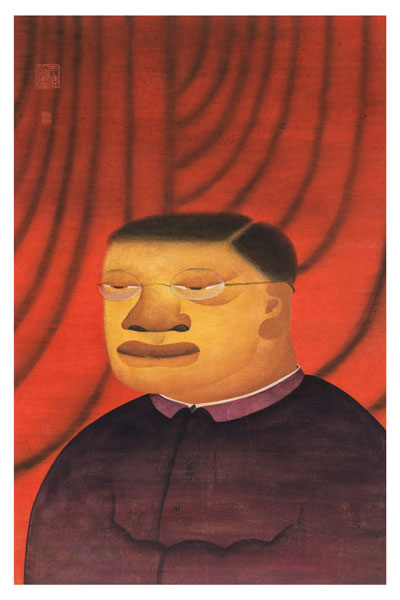 |
|
Zhu Wei's Ink and Wash Research Lectures series is on display at the Beijing exhibition Rendering the Future.
|
Yang continues to explore classical themes of court ladies, flowers and birds. But underneath the seemingly beautiful landscapes there are metaphors for fear and death.
Yang was trained as an ink artist at the Guangzhou Academy of Fine Arts but spent time with a Taoist master shortly after his graduation. He later returned to art, but continues to discipline his mind like a Taoist.
"Because of this, he is able to move forward. He can take, for example, gongbi (meticulous brushwork) painting, and translate it into a rougher form - that might be called "zhuo (rough in Chinese)" - that is suited to his position and message," Erickson says.
She adds that Yang's early training in ink painting has also helped shape his mind and made him a successful artist working with many other media, including installation, video, oil painting, performance and sculpture.
But Yang regularly revisits brush and ink, she says, because it is so adaptable to his expressive needs. "He has found space for a new ink vocabulary, through discipline and an open mind."
"There is not an easy way to develop a new kind of ink painting. The easy ways are not profound and will not last long," Erickson says. She compares the process to playing a piece on the piano or violin, of which a new direction can only be found after much practice.
"And that new direction can be sublime and wonderful and influential," Erickson adds.
We Recommend:
